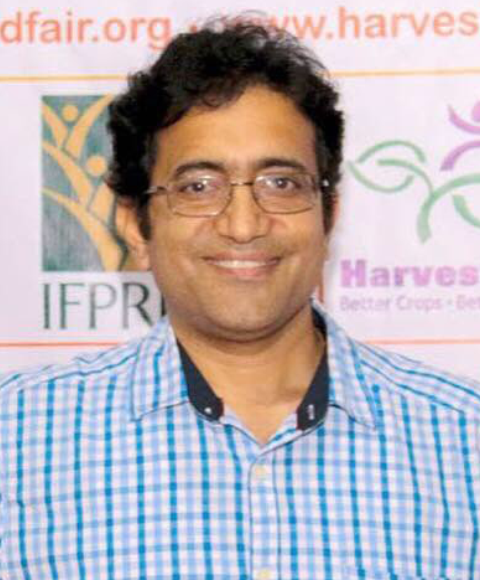Sponsored by the International Potato Center (CIP), this webinar will feature crop experts and champions who will discuss the importance of orange-fleshed sweetpotato (OFSP) in the Nigerian context, including the opportunities it represents for young people, farmers, traders, processors and policymakers. Experts from the Development and dissemination of biofortified crops project, funded by the UK Department for International Development, will discuss their work in addressing vitamin A deficiency. The project also seeks to control the negative long-term impacts of malnutrition on Nigerian productivity and well-being by enhancing the production and consumption of OFSP for children under 5 years, adolescent girls, and women of childbearing age who live in distressed communities.
Nigeria is Africa’s wealthiest, most populous nation, and its fastest-growing economy. Despite these indicators, more than half of the country lives below the poverty line, and northern Nigeria suffers the world’s third highest level of chronic undernutrition among children. With nearly half of its over 200 million people under 20 years of age, and given Nigeria’s natural endowments, the country could be a strong powerhouse in Africa. But according to the BMGF Gatekeepers 2018 report, Nigeria is on a trajectory to become the global hub for the world’s most extreme poor population.
UNICEF estimates that 37% of Nigerian children under 5 years of age are stunted for growth and northern Nigeria accounts approximately 88% of Nigeria’s severely malnourished children. Statistics like these signal a potentially grave demographic disaster if the issue is not addressed appropriately and quickly. Any attempt to improve children’s health cannot be divorced from addressing the nutritional status of adolescent girls and women in the childbearing age group.
Vitamin A is an essential micronutrient for child development. At younger ages, inadequate intake can result in vitamin A deficiency (VAD) causing xerophthalmia, a serious eye disorder that can lead to blindness. Sub-clinical vitamin A deficiency makes children more vulnerable to infection, reducing the ability to fight common childhood diseases, such as measles, diarrhoea and acute respiratory infections (ARI). It is estimated that increasing vitamin A intake can decrease childhood mortality from such illnesses by 12 percent, or nearly one-eighth of childhood deaths.
In Nigeria, large-scale fortification has been used as a strategy for increasing vitamin A intakes amongst the population through the production of fortified staple foods including sugar, oil, margarine, cereal grains, various types of flour and condiments. Although food-based approaches, such as consumption of foods rich in vitamin A and of fortified foods, are becoming increasingly feasible, for large numbers of children aged 6-23 months, these foods remain either unavailable or inaccessible. In Africa, vitamin A deficiency alone is responsible for almost 6 percent of child deaths under the five years of age.
The low nutritional status of women in conflict zones and distressed communities of Nigeria are exacerbated by issues of youth unemployment and falling global oil prices, the revenues from which account for 95% of Nigeria’s exports and 40% of the government revenues. Now, with the COVID-19 lockdown and an impending economic recession, the outlook for food, nutrition and livelihood security of women, children and youth looks uncertain. In this situation, the importance of projects like Development and Delivery of Biofortified Crops at Scale (DDBIO) is higher than ever. Orange-fleshed sweetpotato (OFSP) represents a potent weapon to address many nutrition problems facing the nation, given the crop’s quick maturation, high per unit area useful biomass output, and high nutrition density, especially for vitamin A. The ability to grow sweetpotato in poorly resourced areas offers multiple entrepreneurial opportunities across its value chain. In other words, orange-fleshed sweetpotato is unexploited gem for Nigeria.

Dr. Hemant Nitturkar

Dr. Paul Demo

Mr. Austin Adegoke
Dr. Eddy Nwaogu

Dr. Sanni Lateef

Mr. Augustine Okoruwa

Ibiso Ivy King-Harry

